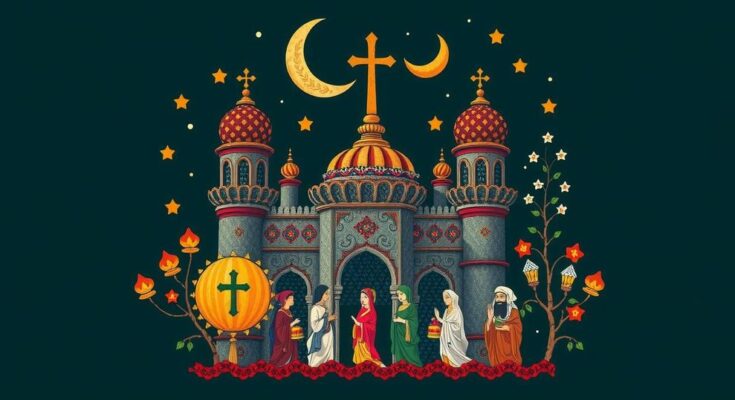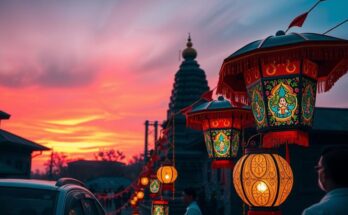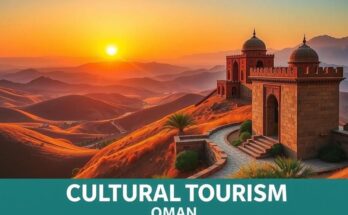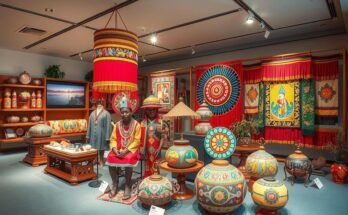Social Welfare Adviser Sharmeen Murshid emphasized the need to protect Bangladesh’s cultural and religious diversity at an event marking the launch of a two-year project focused on community heritage festivals. The event featured the unveiling of four books on intangible cultural heritage and cultural performances celebrating diverse traditions, highlighting the importance of collaboration among communities to safeguard these rich traditions.
At a vibrant event hosted by the Bangladesh National Museum, Social Welfare Adviser Sharmeen Murshid urged the importance of safeguarding the country’s rich cultural and religious diversity. “We believe in the cultural and religious diversity of Bangladesh, and we must protect them,” she passionately proclaimed during the inauguration of a significant two-year initiative called Implementing Community-Based Heritage Festivals in Eight Administrative Divisions. This initiative emphasizes a collective commitment to the country’s heritage, emphasizing that leadership devoid of integrity cannot uphold such values. The celebration not only marked the event’s significance but unveiled four remarkable books written by Lubna Marium, focusing on Bangladesh’s intangible cultural heritage. These publications, including titles like “Terracotta Tales from Somapura” and “Lathikhela: Dance or Defence?”, were warmly received, highlighting the need to encapsulate and share the country’s rich traditions narratively. Professor Niranjan Adhikari from Dhaka University discussed the impact of these works, suggesting a path towards a deeper engagement with cultural narratives. Susan Vize, representing the Unesco Dhaka office, echoed similar sentiments, stating that protecting intangible cultural heritage mandated collaboration among government bodies and local communities, paving the way for engaged leadership and artistry. Lubna Marium further elucidated the project’s scope, indicating that eight organizations would collaborate with local communities to continue enhancing and preserving their unique cultural identities. As the program unfolded, attendees immersed themselves in a breathtaking cultural performance, featuring traditional showcases like the Baha of Santals and the vibrant Sangrai of Marma, painting a vivid tableau of Bangladesh’s diverse heritage. The event also resonated with the essence of the International Day of the Intangible Cultural Heritage, reminding everyone of the collective responsibility to cherish and promote their rich cultural tapestries for future generations.
The topic of cultural and religious diversity in Bangladesh holds significant importance, as the country is home to a multitude of communities, each with its unique traditions and beliefs. Safeguarding this diversity ensures that the nation’s rich cultural heritage remains vibrant and accessible. Initiatives like the Implementing Community-Based Heritage Festivals aim to enhance understanding and appreciation for different cultural expressions, enabling collaborative efforts between local communities and organizations to foster a culture of respect and celebration for diversity.
The voices at the event underscored a powerful message: the integrity of leadership and community engagement are essential for preserving Bangladesh’s cultural and religious diversity. As Sharmeen Murshid and her fellow speakers highlighted, it’s crucial to recognize and protect these cultural narratives, ensuring they flourish for future generations. The collaborative efforts presented in the festival initiative symbolize a promising step towards deepening the understanding and appreciation of the country’s rich heritage.
Original Source: www.thedailystar.net



